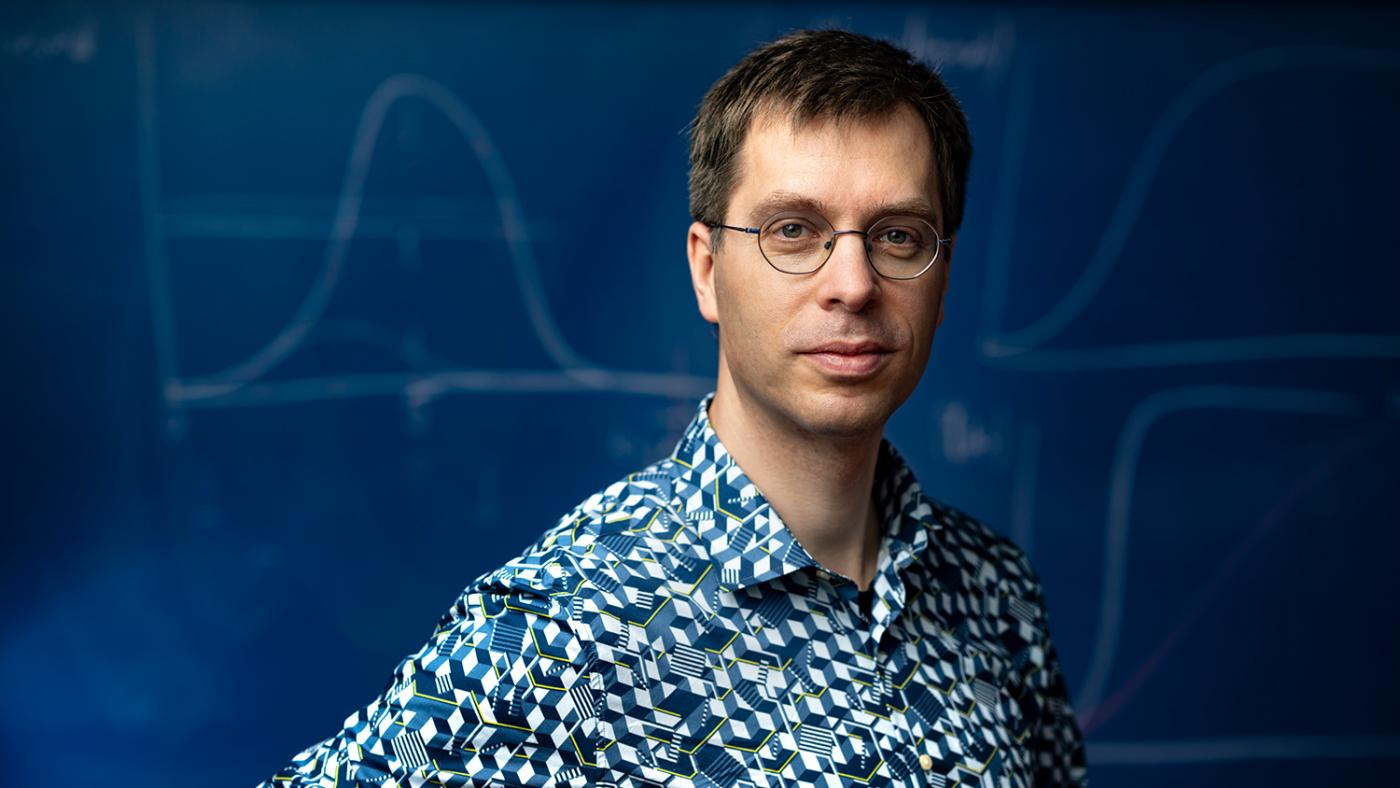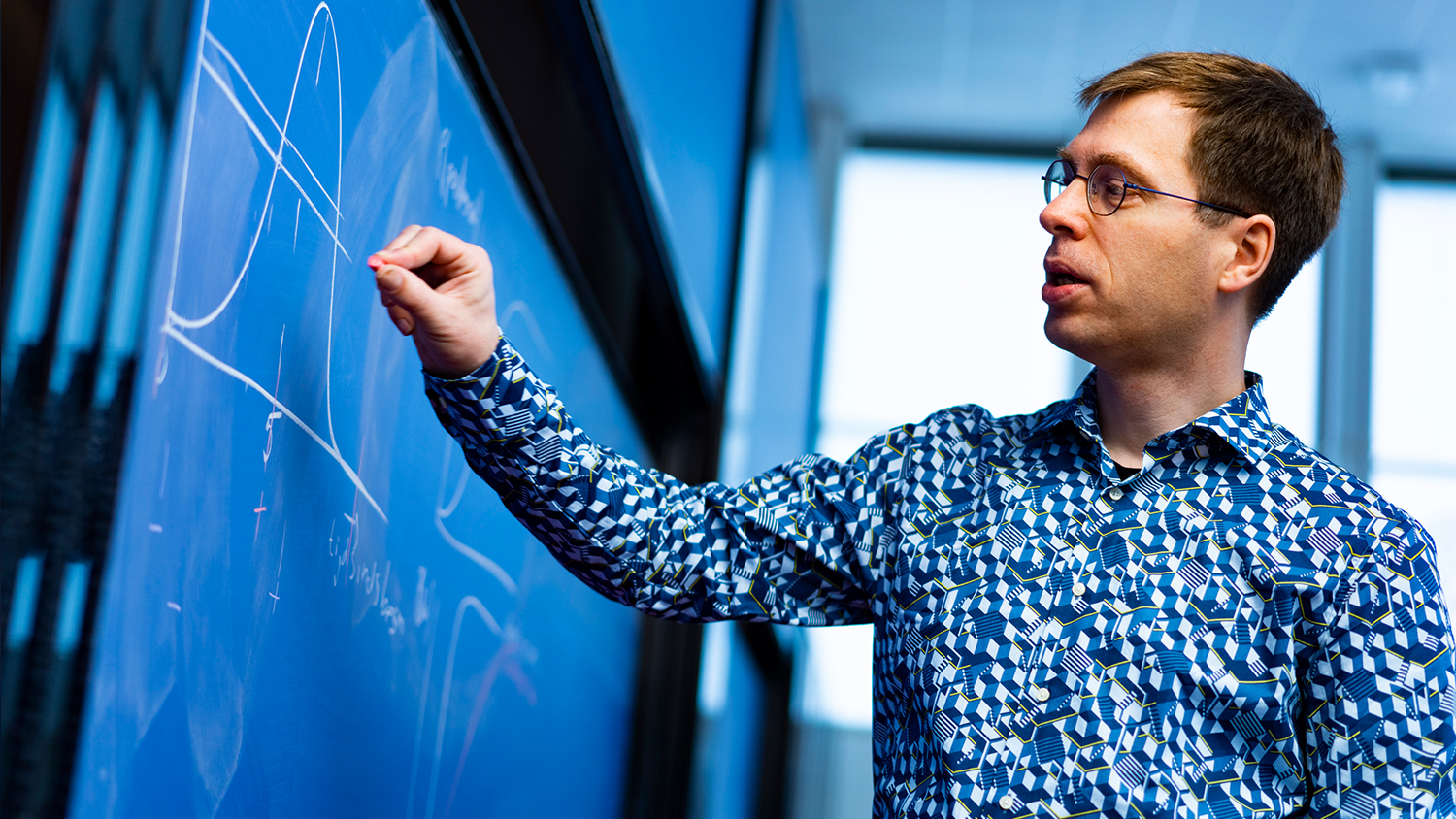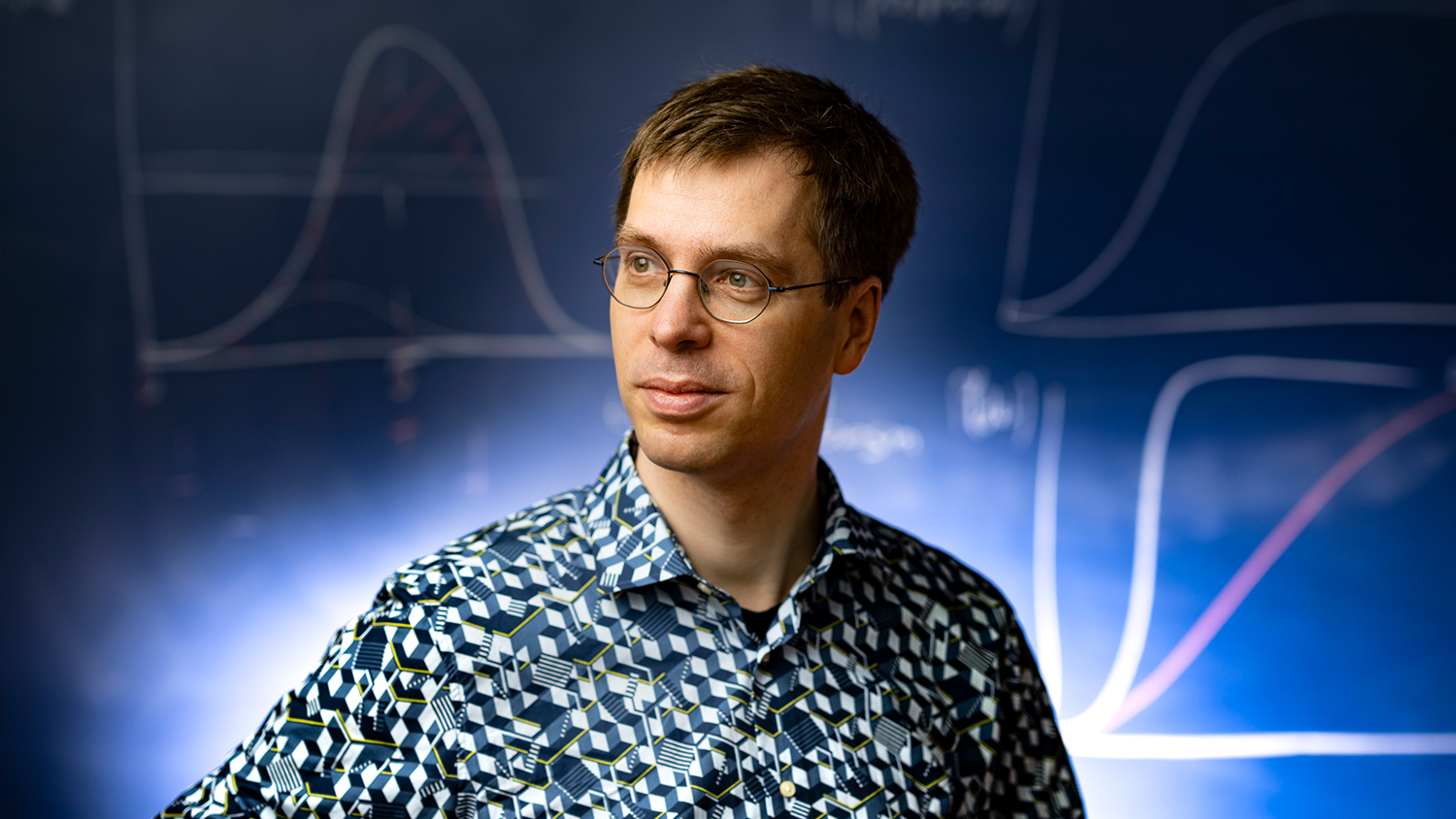Corona mathematician Martin Bootsma: 'It’s hard to put people’s free will into formulas’

Martin Bootsma, you use mathematical models to investigate various questions surrounding the coronavirus. Some of these questions come from policy makers trying to contain the virus’ spread. How does that work?
"There are many laws governing the transmission of a virus. A virus doesn’t spread at random, but rather when people are in contact with each other. Because it is reasonably well known which age groups are in contact with each other, and to what extent, we can calculate the infection rate.
"The last mathematical model I worked with aimed to see whether regular rapid tests were effective enough to identify infected people. If so, we could loosen up the restrictive measures. Both the political party GroenLinks and the UN Confederation of Dutch Industry and Employers (VNO-NCW) called for widespread use of such tests.
“Thanks to our model, we found out that those tests would have almost no effect on transmission, unless every Dutch person took it every three to four days, which is not realistic. The proposal was then re-evaluated by the government.
We can also use that model to see how many people would have to be vaccinated in order to return to the old normal. You can calculate all these things with mathematics.”
Another finding from your mathematical model is how essential the efficiency of source and contact research is.
"Exactly: speed is extremely important. From both the individual who was tested and the GGD. When source and contact research only takes place after four days, it makes almost no sense at all.”
Aren’t you frustrated with how things have been conducted in the Netherlands lately?
"Indeed, it isn’t perfect. A lot of measures become more feasible if the virus prevalence is low. When there are only fifteen infected people instead of 6,000, there is much more manpower available to get a quick overview of their social contacts, so you can contain the virus more easily. But that is not the case now.”

How do you envision the Netherlands’ exit strategy?
"First of all, I expect that we will be stuck with the virus and with these restrictive measures for some time. When the time comes, the exit strategy will be based on herd immunity, which will be achieved mainly by vaccinations. However, more than half of the Dutch population must be vaccinated to achieve that.
"The bulk of the measures cannot be abandoned until 60 percent of the population has been vaccinated, which means 10 million people. The most vulnerable ones (the elderly and those with underlying illnesses) will be vaccinated first, but they are not the ones who spread the virus the most. That is another group entirely. When the first vaccines are given, we should expect little effect in terms of spread, but a small reduction in the hospital load. But that too will not be huge, because the people in the nursing homes, who belong to the first vaccination group, often do not end up in the hospital.
"I expect the measures to be phased out on the basis of economic impact. The more invasive a measure is, the faster it will be loosened up when there is more immunity. Take the hospitality sector, for example: if it is closed for another six months, it will cease to exist. Those measures will therefore be loosen up quicker than the request to work from home as much as possible.”
What about universities? At what stage of the exit strategy do you think students will be able to return to the campus?
"I do not expect that to be the first measure to be lifted, even though I find it annoying myself. The transfer of knowledge to my students goes much better with physical education. But studying at home is going ‘quite well’, which is why I think the hospitality industry will be reopened first. That's of greater national importance, I guess.”
We’re now suffering from SARS 2, but soon it may be SARS 3 or 4. Can another pandemic be prevented?
"That’s a tricky question. After all, viruses jump from animals to humans quite regularly – that’s how most epidemics start. Human will keep coming into contact with viruses from animals, unless everybody became vegetarians, which is not realistic. To prevent a new pandemic, you have to be very strict locally, and the world had to contribute financially. After all, countries cannot bear the load alone.
"Some say that the virus would be eradicated if the Netherlands went into full lockdown for three months. But that is not an option, since the virus will come back from abroad eventually. That will be the case with future viruses as well.”
The United Kingdom started to vaccinate its citizens last week. The CEO of Pfizer & BioNTech, the developers of the vaccine used, called it "the beginning of the end for the pandemic.” Is that really true?
"Yes, in fact it is. I expect a vaccine to be the way out of the pandemic. All other measures must be maintained constantly, whereas vaccination allows us to reach a permanent effect at some point. Only, of course, it is not quite known how long the vaccine will keep someone immune to the virus.”
Some people do not want to be vaccinated. Do you take their free will into account in your calculations?
"We’re definitely looking into that, but the problem is that free will is much more difficult to capture in formulas than transmission. Early in the pandemic, we looked into who was and who wasn’t washing their hands, and who was and wasn’t wearing a face mask. That’s how we try to include free will in the studies but, again, it’s complicated.
“As for the decision to be vaccinated, we look at people’s motives: why does someone choose not to be vaccinated? Can they still change their minds? And what impact does their decision have on the transmission figures? But we also look at it the other way around: do the transmission figures influence the willingness to be vaccinated? That’s immensely relevant to research, and it certainly needs to be looked into, however difficult that may be. However, you cannot put millions of parameters into the formula because that doesn’t make it any clearer. It is important to limit yourself as much as possible to the essence of your research question.”
Minister Hugo de Jonge expects the Netherlands to start vaccinating against the coronavirus in January. How does this affect the mathematical calculations you make?
"The number R is the reproduction number of the virus. If R is 1, then one infected person infects one other person. Then the pandemic remains stable. Above 1, the pandemic grows. You can incorporate the effect of vaccinations into this model.
"Let me give you an example. We calculated that if we abandon all measures, the R number will be 2.5. That means each person infected would then cause an average of 2,5 new infections. If 60 percent of the population is vaccinated (and the vaccine is 100 percent effective), then you make this calculation: 2.5 times 40 percent (these are the people who can still be infected), which is equal to 1. In that case, the pandemic will no longer grow. But then we’re assuming that the vaccine works perfectly, and that 10 million people have been vaccinated, and those are still question marks for the time being.
"What I would like to say is that it will definitely take a while, even though everyone is done with it. However annoying it may be, we will have to go on with the restriction measures for a while.”
Are you going to keep it up until then?
"I'm working a lot at the moment. Often from 9am to 5pm and then three more hours in the evening, and in the weekend there is always something that needs to be done. I work sixty hours a week, easily. I hope it doesn't take too long, but, from a scientific point of view, it is also fun. There is a lot going on and your work has an impact on society. It's not just tiresome, but of course it's better if you don't have to work so hard.”

Dr. Martin Christoffel Jozef Bootsma (42)…
- University lecturer in Mathematics at Utrecht University
- Calculates the spread of infectious diseases through mathematics
- Did his Bachelor's and Master's degrees in Mathematics at Utrecht University.
- Obtained his PhD in 2005 with a thesis on antibiotic resistance-Is glad that he does not have to make the "painful political decisions," but can continue to “comfortably” model them
- Also works at the Julius Centre for Health Sciences and Primary Care of the UMC Utrecht, to calculate how infectious diseases spread.
- Thinks it's terrible that he and other scientists have received angry messages and threats since the pandemic’s outbreak
- Lives in Bunnik and has two children aged 5 and 6.
Photos: Ivar Pel